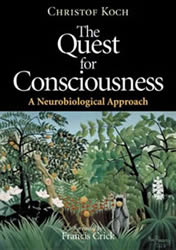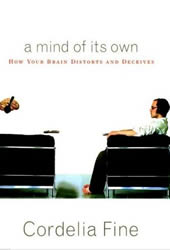Neuropsychology
Investigating how our brain function relates to specific behaviours
Questions
- Why does the human experience encompass such a broad range of behaviours: from empathy towards others and self-sacrifice, to violence and genocide? (each and every one of us clearly has this innate capacity for 'good and evil') Can we evolve past our violent tendencies and create a conflict-free world? Can we solve our environmental challenges?
- What are the common psychological profiles and behaviours that humans express in their daily lives and how can we best deal with others when they are exhibiting specific behaviours? How are we each affected by our own psychological profiles and behaviours? Can we become happier by better understanding the roots of human thought and emotion?
What are the answers today and expected results tomorrow?
Recent Articles of Interest
Neuropsychology Defined
[Reprinted from Wikipedia]
Neuropsychology is an interdisciplinary branch of psychology and neuroscience that aims to understand how the structure and function of the brain relate to specific psychological processes and overt behaviors. The term neuropsychology has been applied to both lesion studies of humans and animals and efforts to record electrical activity from individual cells (or groups of cells) in higher primates (including some studies of human patients)
It is scientific in its approach and shares an information processing view of the mind with cognitive psychology and cognitive science.
It is one of the more eclectic of the psychological disciplines, overlapping at times with areas such as neuroscience, philosophy (particularly philosophy of mind), neurology, psychiatry and computer science (particularly by making use of artificial neural networks).
In practice neuropsychologists tend to work in academia (involved in basic or clinical research), clinical settings (involved in assessing or treating patients with neuropsychological problems - see clinical neuropsychology), forensic settings (often assessing people for legal reasons or court cases or working with offenders, or appearing in court as expert witness) or industry (often as consultants where neuropsychological knowledge is applied to product design or in the management of pharmaceutical clinical-trials research for drugs that might have a potential impact on CNS functioning).
Magazine and Online Resources
In my quest to find answers to these questions I have found the following resources extremely useful:
- Wikipedia, the collaborative online encyclopedia, for a wide range of general and specific scientific inquiries (www.wikipedia.org)
- The Teaching Company Courses (www.teach12.com)
- Scientific American Magazine, as above plus the latest research reports (www.sciam.com)
- Scientific American Mind Magazine, for neurological (neuroscience and neuropsychology) scientific research reports (www.sciam.com/sciammind/)
Book Resources




- The Quest for Consciousness, Christof Koch & Francis Crick (click here for more info)
- A Mind of its Own/How Your Brain Distorts and Deceives, Cordelia Fine (click here for a review)
- The Pathology of Man/A Study of Human Evil, Charles Thomas
- The Corporation/The Pathological Pursuit of Profit and Power, Joel Bakan (click here for a review)
